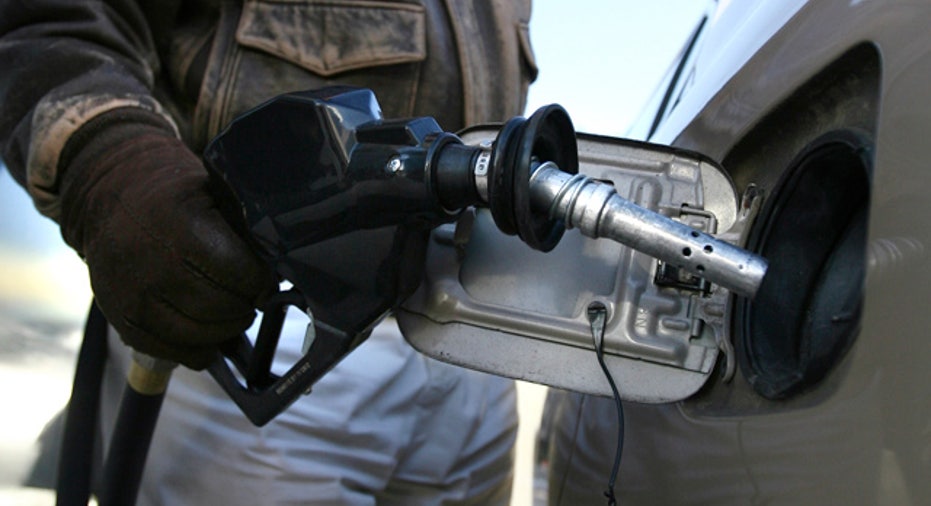Big Oil Companies may Have to Give up Iraq Gas

August 29, 2011 – Many of the world's biggest energy companies may have to surrender most of the gas from Iraq's vast southern oilfields to a processing and export project led by Shell, a final draft contract between Baghdad and Europe's biggest company, obtained by Reuters, shows.
Oil giants including Royal Dutch Shell, BP, U.S.-based Exxon (NYSE:XOM), China's CNPC, and Italy's Eni signed technical service contracts to develop three oilfields in southern Iraq in 2009-2010.
But the oil deals to develop the Zubair, Rumaila and West Qurna 1 fields near Basra oblige the big oil contractors to surrender the gas they do not use for reinjection or power generation to Iraq's state-run South Gas Co.
Under the $17-billion gas deal to be ratified by the Iraqi cabinet, Baghdad has pledged to do what it takes to ensure these fields supply the Shell-led Basra Gas Company (BGC) joint venture with all the raw gas and natural gas liquids (LNG) it needs, including for an LNG export plant.
"SGC shall procure that all raw gas produced from the dedicated fields (other than utilized gas but including all NGLs) ... shall, on and from commencement of operations, be dedicated solely to the venture," the contract reads.
"The Ministry shall ensure that SGC fulfils its obligation to supply and make available to BGC all committed volumes and planned volumes of raw gas, including by making available deficit volumes as needed," said a letter of confirmation from the energy ministry attached to the contract.
Under the terms of the oil contracts, SGC owns all the gas not used for oil recovery or power generation at the oil fields. With production from some of the world's largest underdeveloped oilfields expected to surge over the next decade as Iraq boosts capacity toward 12 million barrels per day, there is likely to be much more gas than the country needs before long.
The other big oil companies could propose alternatives for using some of it and some are understood to be considering their own gas projects.
But the oil ministry's confirmation letter attached to the deal said the government will make sure SGC meets its side of the supply deal and ensure that other parties do not prevent it from doing so, including "not permitting any other entity to do a specified thing."
The quantities of raw unprocessed gas SGC will deliver to the Shell-led joint venture, backed by minority partner Japan's Mitsubishi, are not in the draft and will be revised in line with output from the oilfields.
But the signatories expect dedicated volumes at plateau of at least 2,000 million standard cubic feet per day (mmcfd) of raw gas to be available to the BGC project -- a vital part of Iraq's master plan to boost electricity and domestic industry output.
SGC will be legally obliged to supply at least 85% of the agreed volumes, while BGC will be obliged to take and pay for, or pay for even if not taken, 90% of that volume, the contract says.
LNG PLAN
Providing Iraq's own modest gas needs are met first, the contract gives BGC the right to build and operate a 4 million-tonne per year (mtpa) LNG terminal and, subject to government approval, another LNG export facility later.
A wholly-owned affiliate of Shell will buy all the LNG produced at market prices and would be able to sell it anywhere it chooses for at least 20 years, providing it is not to a country then embargoed by the government of Iraq.
PRICING
A simplified official agreement presented to the Iraqi parliament and obtained by Reuters in early August indicated BGC would sell the dry gas back to SGC under a fuel-oil linked pricing formula.
The full draft contract shows that, once investments by the private shareholders have matched the value of assets transferred from state-owned SGC, BGC would sell dry gas back to SGC at a price based on the average daily high and low quotations of spot High Sulphur Fuel Oil (HSFO) 180 FOB Arab Gulf in the previous quarter from pricing agency Platts.
According to Reuters calculations based on an average daily closing price for Platts' HSFO 180 CST FOB Arab Gulf in the second quarter of 2011 of $647.77 per tonne, the reference price for gas sold to SGC would be $5.78 per million British thermal units (mmbtu) for the present quarter.
This compares to current U.S. front month gas prices of around $4.4/mmbtu and UK prices of around $9.2/mmbtu.
The Iraqi government has decided SGC will then sell the dry gas to Iraqi industry at just $1.04/mmbtu, according to the summary presented to Baghdad lawmakers, to ensure Iraq has cheap fuel it needs to be competitive in a region of subsidized gas supplies.
The price of any condensate BGC sells to SGC would similarly be priced off Platts' spot Dubai crude assessments, while LPG prices would be based on Argus' Asia Far East indices for propane and butane.
The monthly pricing of raw gas from the dedicated fields that BGC will pay SGC is complicated. It would take into account BGC fuel and any power sales in the previous month and include a windfall adjustment for the difference between BGC's dry gas revenue and a dry gas base price linked to Brent crude.



















